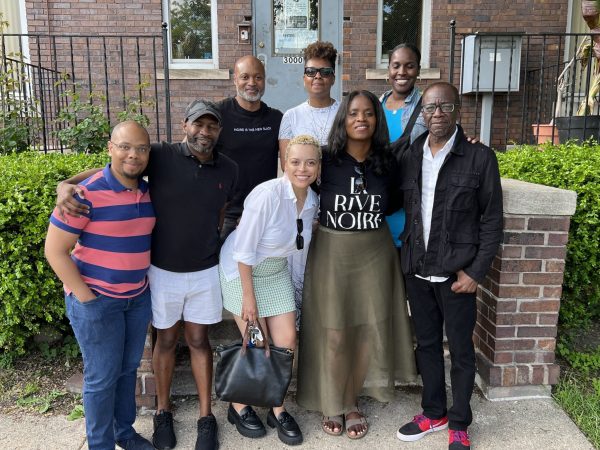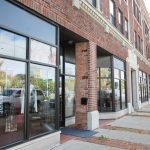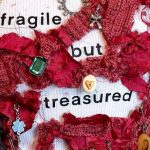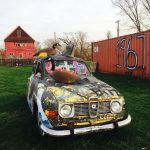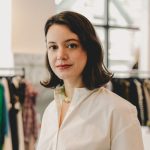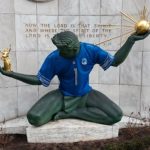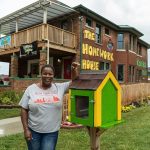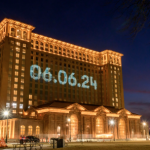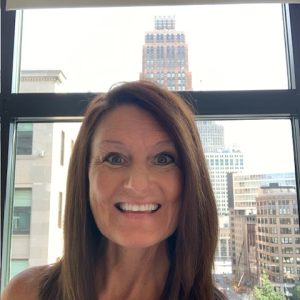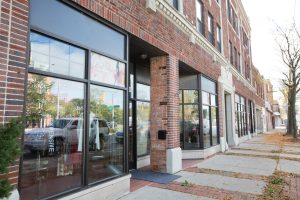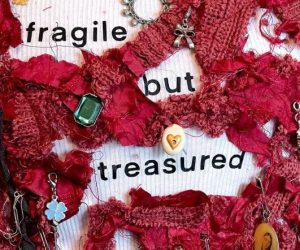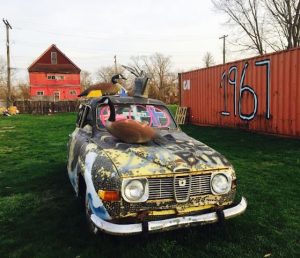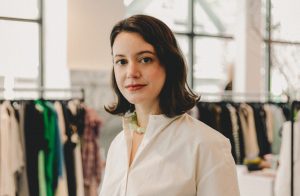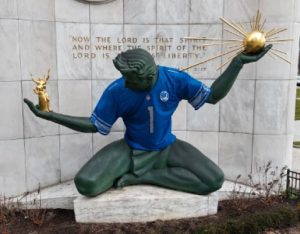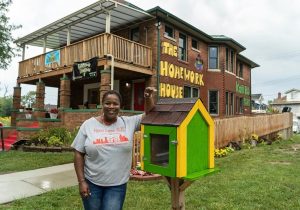One of the first initiatives to come out of the Institute for AfroUrbanism will be the Black Thriving Index, “a year long, citywide dialogue that seeks to understand the social, spatial and spiritual conditions necessary in or for Black citizens to thrive”.
Lauren Hood recently founded the Institute for AfroUrbanism with the intent of galvanizing place-based creatives, planners, developers and citizen stakeholders toward a shared pursuit of “Black Thriving.”
Hood, a native Detroiter and AfroUrbanist, is working at the intersection of black aspiration and city change.
Detroitisit recently spoke with Hood about her vision and desired outcomes of the Black Thriving Index and the Institute itself.
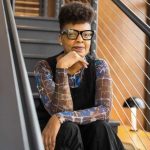
LAUREN HOOD
DII: What is the impetus behind the Institute of Afro Urbanism?
LH: Put simply, the Institute is a platform for doing more culture-centric community development.
As a black person and native Detroiter who works in community development, it has become apparent to me that a lot of the vision for moving forward is not reflective of the people or the dominant culture here.
Largely, planners that work in the city on plans & projects come in thinking that the people who live here have nothing of real value to contribute and when that’s the guiding ethos, you can’t get to the kind of input that could be really transformational.
There is blatant genius that we are not uncovering.
These untapped perspectives offer invaluable information. We need to tap into those voices and raise them up in order to manifest the future we say we want here.
DII: How will this first of many initiatives – the Black Thriving Index – help you toward this end?
LH: The Black Thriving Index is about talking to citizens regarding what they want to see for the future and things that have helped them thrive and then creating these conditions for the next generation.
This is a year-long dialogue and it exists solely to hear what Black citizens are saying.
DII: What kind of report will come from the Black Thriving Index and who do you see utilizing it?
LH: I envision a traditional white paper that will be used by philanthropy in their planning, non-profits in thinking about how to better format programs, government in planning future policies, and other entities doing development work in the city.
I also want the information collected to be a source of inspiration for Black folks. In addition to the traditional white paper, we’re investigating more accessible means of spreading the good word. It may in the form of social media posts, or a website dashboard that organizes the information in an easy to navigate way.
DII: As part of the Black Thriving Index you took 11 individuals on an expedition to Paris to look at the meaning of black thriving there. What is the next step here with your findings and insights from that trip?
LH: It’s all about collecting information on what Black folks need in order to thrive. The expedition connects cross sectors. I took black creatives and community planners/developers from Detroit. We met with thriving Black Parisians to begin to uncover if there are things universal to our needs in order to thrive.
The Institute for AfroUrbanism will do an expedition like this annually to predominantly Black communities in other geographies. The goal is to have a global understanding of Black Thriving and to seed an international constellation of AfroUrbanists.
DII: How will the institute work? Going forward will there be programming? Education?
LH: I am using it as central clearing house for all the work I want to do around black thriving. On paper it’s a non-profit think tank. It really exists as a central platform.
In the spring the institute will produce a dialogue series that works at the intersection of community development and the arts. Our imaginations have become stagnant in community development and we can get inspiration from the freedom with which artist practice and create.
To that end, I want to engage planners and artists in cross disciplinary dialogue.
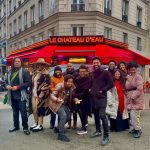
PARIS EXPEDITION
DII: Is the institute brick and mortar and if so where located?
LH: The IAU bought a building last month. It’s a church property in the North End neighborhood. The goal here is to activate black imagination and programming to stretch minds around what is possible.
We will have Sunday Afro Urbanist assemblies with speakers on self-determination, live music, announcements, etc. It will operate very much like a traditional church service but be centered around Black thriving and AfroUrbanism.
DII: What is the future vision for the Institute of Afro Urbanism?
LH: I want it to be a platform that exists in perpetuity for free black thought. I hope it will continue to encourage free black thought and channel resources toward that.
I also think it’s a model for what is possible. I want to demonstrate that we don’t have to sign on to an institutional vision for Detroit’s future. It’s entirely possible to manifest a citizen sourced vision for a thriving Black city/citizenry once we align around what that is. There are a multitude of programs and organizations fighting against conditions we don’t want to see, I want the institute to be a platform that fights for the things we do want to see. It exists to help manifest our freedom dreams.
As always, be sure to subscribe to our newsletter for regular updates on all things Detroit.





